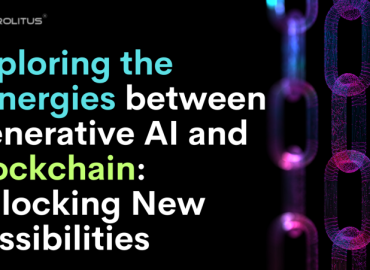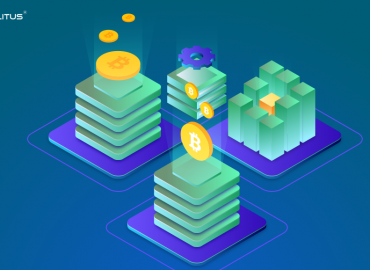In recent years, a transformative shift has been taking place within the real estate industry, one that has the potential to democratize property ownership and revolutionize the way we invest in real estate. This groundbreaking evolution is known as tokenized real estate. In this beginner’s guide, we will delve into the concept of tokenization and its profound implications for digital real estate ownership.
Traditional real estate investment has long been associated with significant capital commitments, extended transaction processes, and a lack of accessibility for those with limited financial resources. However, the integration of blockchain technology into the real estate sector has ushered in a new era of opportunity, disrupting the status quo.
What is Real Estate Tokenization?
At its core, real estate tokenization involves the conversion of tangible real estate assets into digital tokens that are securely stored on a blockchain. These tokens represent ownership stakes in the underlying properties, and they can be divided into smaller, more manageable units. This fractionalization allows individuals to own a share of real estate previously out of their financial reach, breaking down the barriers to entry in the real estate market.
Transparency and Trust: The Blockchain Advantage
Blockchain technology is the cornerstone of this transformation. It brings unprecedented transparency and trust to the real estate domain. The use of smart contracts, self-executing code with predefined conditions, ensures that transactions occur with immutability and integrity. For example, a smart contract can facilitate the transfer of property rights in a land register without the need for human intervention. This automation adds another layer of security and efficiency to the real estate market.
How Does Real Estate Tokenization Work?
Real estate tokenization is a process that mirrors the principles of crowdfunding and uses blockchain technology to transform tangible real estate assets into digital tokens, offering an innovative approach to property ownership. Let’s delve into the mechanics of real estate tokenization.
Breaking Down the Property
At the heart of real estate tokenization is the division of a real property into smaller, more manageable fractions. Each of these fractions is represented by digital tokens. These tokens are securely stored on a decentralized database, commonly known as a blockchain, which functions as a distributed ledger. This blockchain ensures transparency, trust, and accessibility to all network participants.
Token Types and Their Representation
Real estate tokens bear some similarities to non-fungible tokens (NFTs), which are unique units of data on a blockchain that can be bought and sold. However, real estate tokens are distinct in that they are inherently linked to the value of physical assets. A real estate token can represent various aspects, including:
- Ownership of Real Property: A share in a specific real estate asset.
- Ownership of the Entire Property: Complete ownership of a single real estate asset.
- Equity Interest in an Entity: Ownership in an entity that controls real estate assets.
- Debt Interest: A stake in a debt secured by real property.
- Profit Sharing Rights: The right to share in the profits generated by real estate.
Real estate tokenization typically follows these steps:
Asset Evaluation: The property’s value is assessed, and legal compliance is ensured.
Smart Contract Implementation: Smart contracts, automated code on the blockchain, are utilized to divide the property into fractional units.
Token Creation: Digital tokens are created to represent these fractional units, and each is encrypted to denote ownership.
Ownership Transfer: Ownership can be swiftly transferred from one investor to another on digital securities marketplaces, facilitated by alternative trading systems (ATSs). This process is efficient and cost-effective.
Real-World Examples
Several real-world examples showcase the success of real estate tokenization. For instance, the Aspen Coins project raised approximately $18 million in 2018, allowing investors to acquire fractional ownership of the luxury St. Regis Aspen Resort in Colorado, USA. Additionally, ongoing projects, such as a multifamily residential project in downtown San Jose, aim to raise $100 million by offering 100 million tokens at $1 each, creating affordable investment opportunities for a wide range of investors.
Unlocking the Benefits of Real Estate Tokenization
Real estate tokenization brings a multitude of advantages to the real estate industry, reshaping the way properties are bought, sold, and invested in. Here, we explore the substantial benefits of real estate tokenization, which range from enhanced liquidity to increased accessibility for investors.
1. Increased Asset Liquidity
Tokenization fundamentally transforms the real estate market by allowing for fractional ownership of properties. This means that real estate assets can be divided into smaller, more manageable portions, represented by digital tokens. The key benefit here is heightened asset liquidity.
Investors can now buy and sell fractional shares of a specific property without needing to transact the entire asset. This ease of trading enhances accessibility to funds and offers investors the flexibility to exit their investment swiftly when needed. It simplifies the process and provides a level of liquidity that was previously challenging to achieve in the real estate market.
2. Greater Transaction Transparency
Real estate tokenization operates on blockchain technology, which records every transaction immutably and transparently. When a token undergoes a transaction, all network participants are immediately informed. This ensures complete transparency and enables investors to scrutinize the token’s history, pricing, and transaction details at any given time.
The use of smart contracts, self-executing code, further strengthens the transparency of transactions. These contracts eliminate the need for intermediaries, reducing the potential for errors and ensuring that the recorded information remains tamper-proof. As a result, investors can have confidence in the accuracy and integrity of their transactions.
3. Access to a Wider Pool of Investors
Fractionalization of real estate assets broadens the investor pool significantly. This innovation not only makes real estate investment accessible to those with limited funds but also eliminates geographical barriers. Investors from around the world can participate in real estate projects, enabling a more diverse and global investor base.
Real estate tokenization transcends traditional boundaries, empowering investors from various locations to invest in properties they find promising. This democratization of access levels the playing field, opening up real estate investment opportunities to a broader range of individuals.
4. Better Liquidity and Market Dynamics
Real estate has historically been associated with a lack of liquidity, making buying and selling properties a cumbersome process. Tokenization overcomes this challenge by breaking properties into smaller, more tradable units. Token owners can quickly and efficiently trade their holdings, leading to a more fluid and dynamic real estate market.
This transformation allows real estate investors to adapt to changing circumstances, whether they want to cash out, diversify their portfolio, or take advantage of new investment opportunities.
5. Opportunity for Small-Scale Investors
Traditionally, real estate investments were considered the domain of the wealthy elite due to the substantial capital required. Real estate tokenization, however, has made it possible for small-scale investors to participate. The division of large assets into smaller, more affordable fractions enables retail investors to join the real estate market, diversify their portfolios, and potentially benefit from the property market’s growth.
6. Decrease in Counterparty Risk
Blockchain technology, along with the use of smart contracts, simplifies transactions and reduces counterparty risk. Transactions on the blockchain are transparent and minimize human interaction, thereby shortening transaction chains. This streamlined process lessens the risks associated with counterparty involvement and enhances the overall security and efficiency of real estate transactions.
Challenges and Limitations of Real Estate Tokenization
Real estate tokenization holds immense promise, but like any emerging technology, it is not without its challenges and limitations. These limitations can be grouped into several key areas that require attention and resolution.
1. Smart Contract Security Loopholes
While blockchain networks are known for their security, smart contracts, which underpin many tokenized assets, can still be vulnerable to security breaches. Hackers may attempt to exploit vulnerabilities in smart contract code to steal funds or manipulate transactions. This underscores the importance of rigorous smart contract auditing to ensure the security of assets. Once assets are lost due to a hack or glitch, recovery is virtually impossible.
2. Complex Licensing Requirements
The tokenization of real estate assets often requires regulated platforms for security token offerings (STOs). Acquiring the necessary licenses is a complex and arduous process. It involves multiple phases of testing and regulatory compliance, creating barriers for entry and potentially delaying the development of tokenized assets.
3. Regulatory Issues
A lack of understanding about blockchain technology among regulatory authorities and real estate professionals can hinder the growth of tokenized real estate. The resulting regulatory uncertainty can erode investor trust and impede the development of the tokenization market. Clear and harmonized regulatory frameworks are needed to support the industry’s growth.
4. Tax Complexities
The global cryptocurrency tax landscape is largely undefined, creating challenges for stakeholders in the tokenization space. While the benefits of tokenization are recognized worldwide, the absence of a unified tax system can create doubts and complexities. Establishing clear tax guidelines for tokenized assets is essential to promote investor confidence and reduce uncertainties.
5. Legal Formalities
Real estate tokenization must adhere to land law formalities, which often reflect traditional, pre-digital practices. These formalities can present challenges, particularly in transactions related to legal title to land. Innovative solutions, such as separating legal title from beneficial ownership or creating rights to a share in profits, may be necessary to harmonize traditional practices with innovative structures.
6. Regulatory Compliance
Tokenization projects must navigate regulatory challenges, especially when tokens exhibit features similar to traditional financial instruments like shares or debentures. Such tokens may fall under the purview of financial regulations, subjecting issuers to prudential, conduct of business, and governance requirements. Understanding the specific regulatory landscape in each jurisdiction is essential.
7. Environmental Concerns
Early blockchain systems raised concerns about energy consumption. However, more recent developments have mitigated these concerns. Ethereum, a widely used blockchain infrastructure for tokenization, significantly reduced its energy consumption through protocol changes. Moreover, private blockchain systems with lower carbon footprints are available. As a result, environmental barriers to tokenization adoption have been substantially reduce.
8. Due Diligence and Data Management
Real estate transactions require extensive due diligence, involving the collection of information from various stakeholders and organizations. This process can be time-consuming and complex. Initiatives to streamline data gathering, such as data flows, automated analytics, and blockchain registers, offer potential solutions to enhance efficiency and transparency in due diligence. A token that provides access to a comprehensive repository of asset information could be a significant innovation.
The Final Thought : The Road Ahead to Embrace The True Potential Of Real Estate Tokenization
The future of real estate tokenization is nothing short of revolutionary, as underscored by a series of compelling statistics. In 2020, the total value of tokenized real estate reached an estimated USD 128 million, revealing a significant leap in interest and investment within a short span. What’s even more striking is the remarkable growth trajectory of the real estate tokenization market. From June 2021 to May 2022, the monthly market capitalization of real estate tokens surged from $65 million to an impressive $194 million, positioning it as the fastest-growing sector within the emerging tokenization market, which itself boasts a total market capitalization of $16.4 billion. These numbers tell a compelling story of burgeoning market interest and a rapidly expanding landscape.
However, it’s crucial to put this growth into perspective. The present value of the tokenized real estate market is around US$200 million, a substantial figure in its own right. Yet, when we consider the vast global real estate market, estimated at a staggering US$317 trillion, the potential for growth is breathtaking. Even a modest 0.5% tokenization rate would create a trillion-dollar industry, showcasing the vast untapped potential that lies ahead. Looking toward the future, a report by ResearchAndMarkets predicts that the global real estate tokenization market will reach an estimated size of $1.5 billion by 2025. These numbers affirm that real estate tokenization is not just a trend but a transformative force that is reshaping the industry, unlocking accessibility, liquidity, and efficiency in its wake. The journey ahead is illuminating with promise and potential.
Prolitus: Your Real Estate Tokenization Development Partner
When it comes to unleashing the power of real estate tokenization development, Prolitus is your ideal partner. With a strong background in blockchain and a penchant for innovation, We offer tailored solutions to match the uniqueness of your real estate project. Security and compliance are paramount, assuring that your investment is protecting and aligns with the regulatory landscape. Embrace the future of real estate tokenization development with Prolitus by your side.
Contact us today and embark on a journey into the future of property investment.





